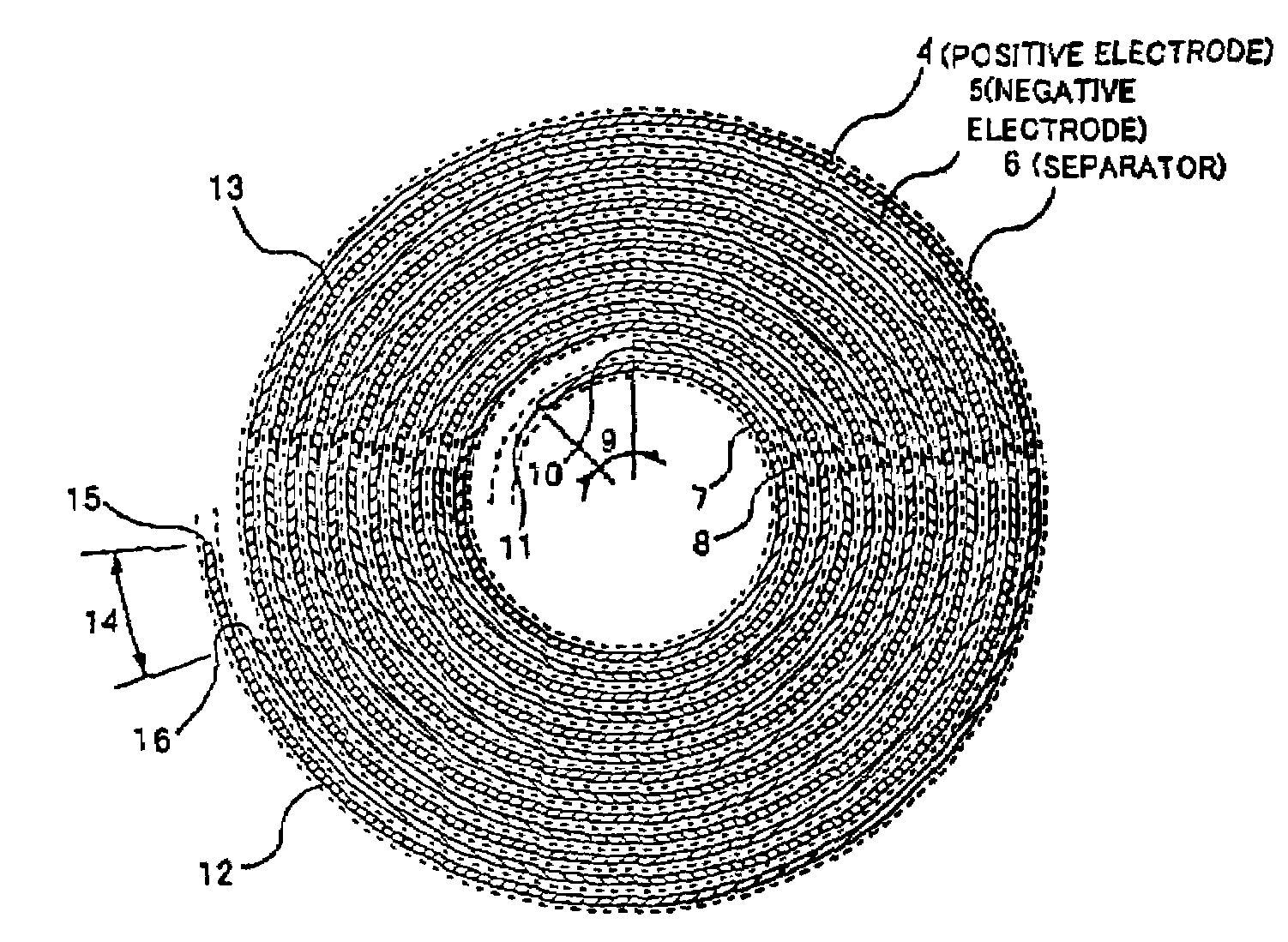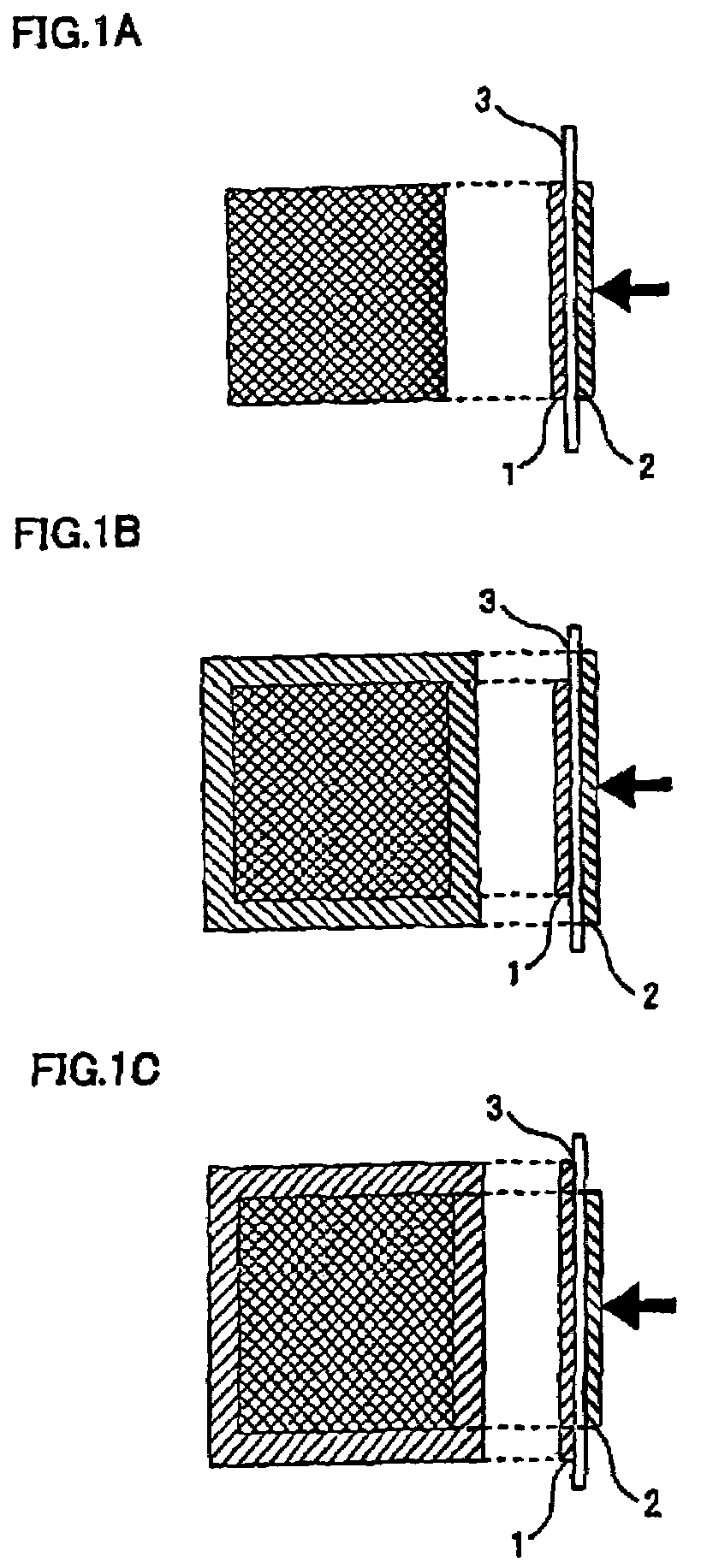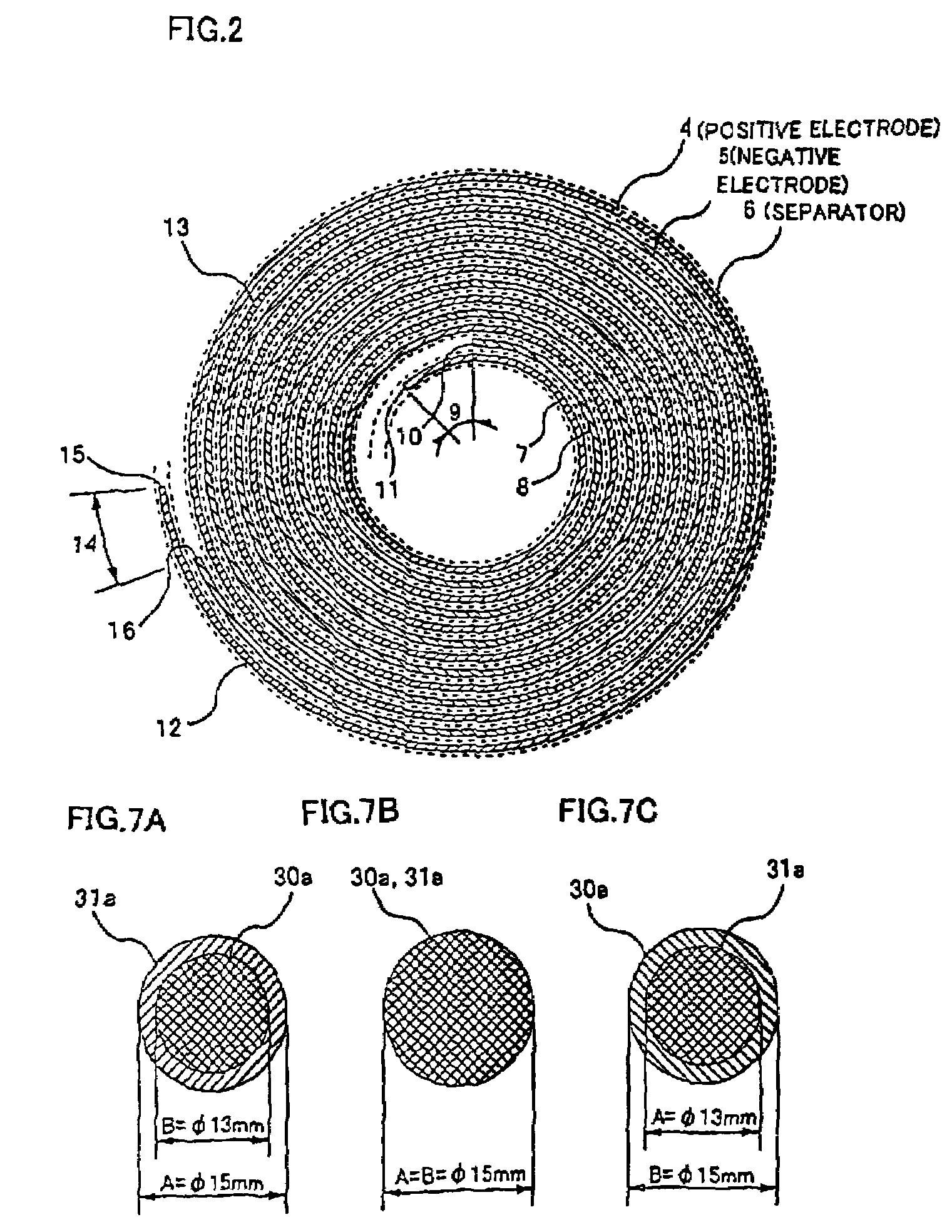Nonaqueous electrolytic secondary battery and method of producing anode material thereof
a technology of nonaqueous electrolyte and secondary battery, which is applied in the direction of cell components, final product manufacturing, sustainable manufacturing/processing, etc., can solve the problems of reducing cycle life, battery of this kind suffers the disadvantage of decreasing discharge capacity, and the disadvantage of becoming nearly or completely unusabl
- Summary
- Abstract
- Description
- Claims
- Application Information
AI Technical Summary
Benefits of technology
Problems solved by technology
Method used
Image
Examples
Embodiment Construction
[Outline of Disclosure]
[0053]The fist aspect of the present invention involves a nonaqueous electrolyte secondary battery comprising a positive electrode made of a carbonaceous material, an electrolyte containing a lithium salt, and a negative electrode made of metallic lithium or a material capable of occluding and releasing lithium, wherein said positive electrode is formed from a boronized graphitic material containing boron or a boron compound such that the content of boron therein is 0.05-11 wt %.
[0054]The term “boronized graphitic material” used herein denotes a graphitic material (mixture) composed of a solid solution in which carbon atoms constituting graphite are partly substituted by boron atoms and a boron compound typified by boron carbide.
[0055]Ordinary synthetic graphitic materials are prepared from organic materials (such as petroleum pitch, coal tar pitch, condensed polycyclic hydrocarbon compounds, and organic polymeric compounds) by carbonization at 300-700° C. in ...
PUM
| Property | Measurement | Unit |
|---|---|---|
| charging capacity | aaaaa | aaaaa |
| average particle diameter | aaaaa | aaaaa |
| average particle diameter | aaaaa | aaaaa |
Abstract
Description
Claims
Application Information
 Login to View More
Login to View More - R&D
- Intellectual Property
- Life Sciences
- Materials
- Tech Scout
- Unparalleled Data Quality
- Higher Quality Content
- 60% Fewer Hallucinations
Browse by: Latest US Patents, China's latest patents, Technical Efficacy Thesaurus, Application Domain, Technology Topic, Popular Technical Reports.
© 2025 PatSnap. All rights reserved.Legal|Privacy policy|Modern Slavery Act Transparency Statement|Sitemap|About US| Contact US: help@patsnap.com



